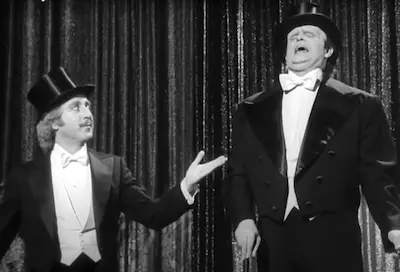‘Super-duper’ means especially large, powerful or impressive; exceptional, marvellous.
It is used for emphasis – ‘super’ plus a bit more, and is often followed by an exclamation mark.
‘Super-duper’ means especially large, powerful or impressive; exceptional, marvellous.
It is used for emphasis – ‘super’ plus a bit more, and is often followed by an exclamation mark.
It will come as no surprise that ‘super-duper’ was coined in the USA.
The first use of it in print that I’ve found is in a 1969 informational magazine for teachers in (where else?) Texas, called The Texas Outlook:
Your play has to be a good one, and it has to be a super-duper production to gain and hold the attention of squirming, wriggling youngsters.
Super-duper follows the familiar reduplicated phrase recipe by taking a word with a meaning and adding a rhyming or alliterative second word. As is also common, the second word ‘duper’ has no meaning in itself, it’s just there for emphasis. (Yes, I know ‘duper’ is a word, but the meaning ‘one who dupes’ isn’t what’s meant by this expression.)
The phrase appears a few times in print over the next ten years or so but didn’t have a wide usage. What propelled it into the English language was the song that Irving Berlin wrote in May 1927 – Puttin’ On the Ritz:
Dressed up like a million-dollar trooper
Trying hard to look like Gary Cooper (super-duper)
Come, let’s mix where Rockefellers walk with sticks or umbrellas in their mitts
Puttin’ on the ritz
Fred Astaire’s recording of the song, and the dance routine he performed with it, were a big hits in the late 1920s.
BTW. If you haven’t seen the Puttin’ on the ritz dance routine from Mel Brooks’ Young Frankenstein I can recommend it.
Trend of super – duper in printed material over time

A B C D E F G H I J K L M N O P Q R S T UV W XYZ
American Animals Australian Bible Body Colour Conflict Death Devil Dogs Emotions Euphemism Family Fashion Food French Horses ‘Jack’ Luck Money Military Music Names Nature Nautical Numbers Politics Religion Shakespeare Stupidity Entertainment Weather Women Work
Have you spotted something that needs updated on this page? We review all feedback we receive to ensure that we provide the most accurate and up to date information on phrases.